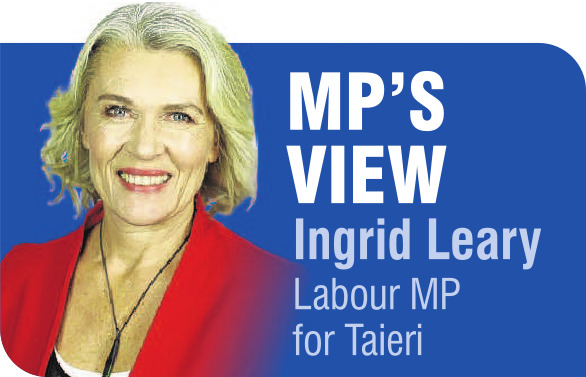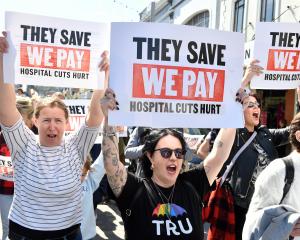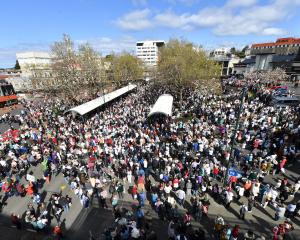

My 85-year-old father, generally a man of understatement, said he had never heard a crowd like the one at the Black Ferns v England final, since the end of WW2.
It’s not just a victory for sportswomen now and into the future, but for all those who have advocated for so long that women’s sport should be on an equal footing with men’s.
My 9-year-old’s aunty, Monalisa Codling, is one of those who self-funded her way to four Rugby World Cup wins without any of the perks afforded the men.
As someone rightly said, the latest win makes it six for the women. So perhaps it’s they who should be on the Weet-Bix box?
When women have equal rights and standing with men, everyone wins: children, families, men, communities. This was a key theme at the Women Political Leaders Global Forum in Iceland last week, as we discussed the difference it makes when women have the choice to go out and work.
For many working families here in the Taieri electorate, child care is one of the biggest household costs, which often means it’s not worthwhile for women to work.
That’s why I am so delighted that as part of our Government’s work to support New Zealanders with the cost of living, we’re making child care more affordable for low and middle income families.
We recently announced that we are significantly expanding child care assistance, cutting costs for working parents and supporting more children into early education.
On top of this, we are further boosting Working for Families and the Best Start payment, providing more support to help ease the pressure.
These changes will kick in from 1 April next year.
The exact amount families will save on child care costs will depend on the number of hours they work, the wages they are on, the number of hours of child care per day, and the cost of their early child care education centre.
For example, a Mosgiel family with two parents, both working 40 hours a week on $26 an hour with two children under 5, who would not have been eligible for child care assistance, would be eligible for $252 a week.
Child care assistance has been neglected for more than a decade, since income thresholds were frozen by National in 2010.
I’m really proud that the changes we’re making will see thousands of parents given back the choice to do what’s best for their family.
These next steps build on the work we’ve already done to ease cost of living pressures on New Zealanders, including the fuel tax cut, action on supermarkets and more.














